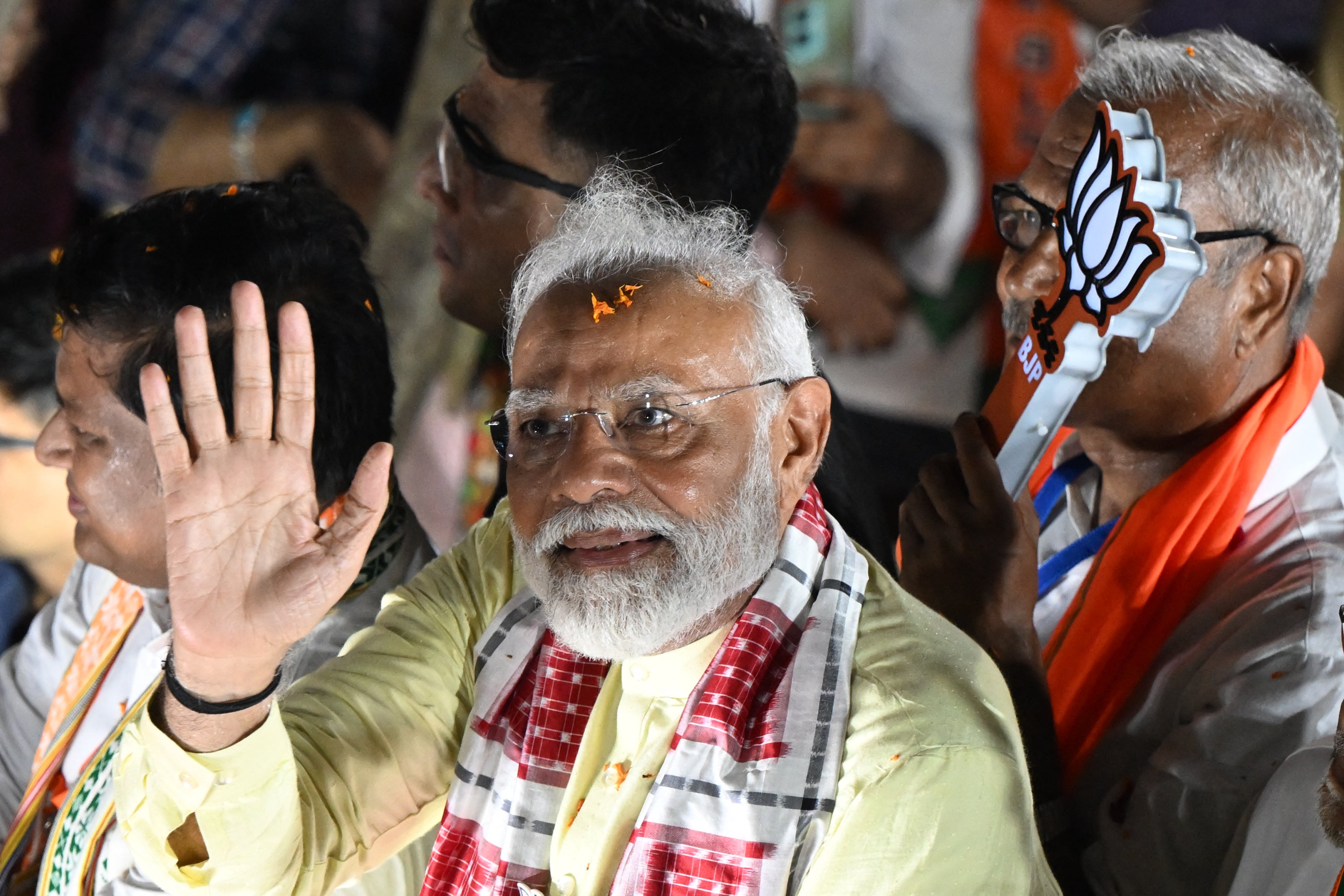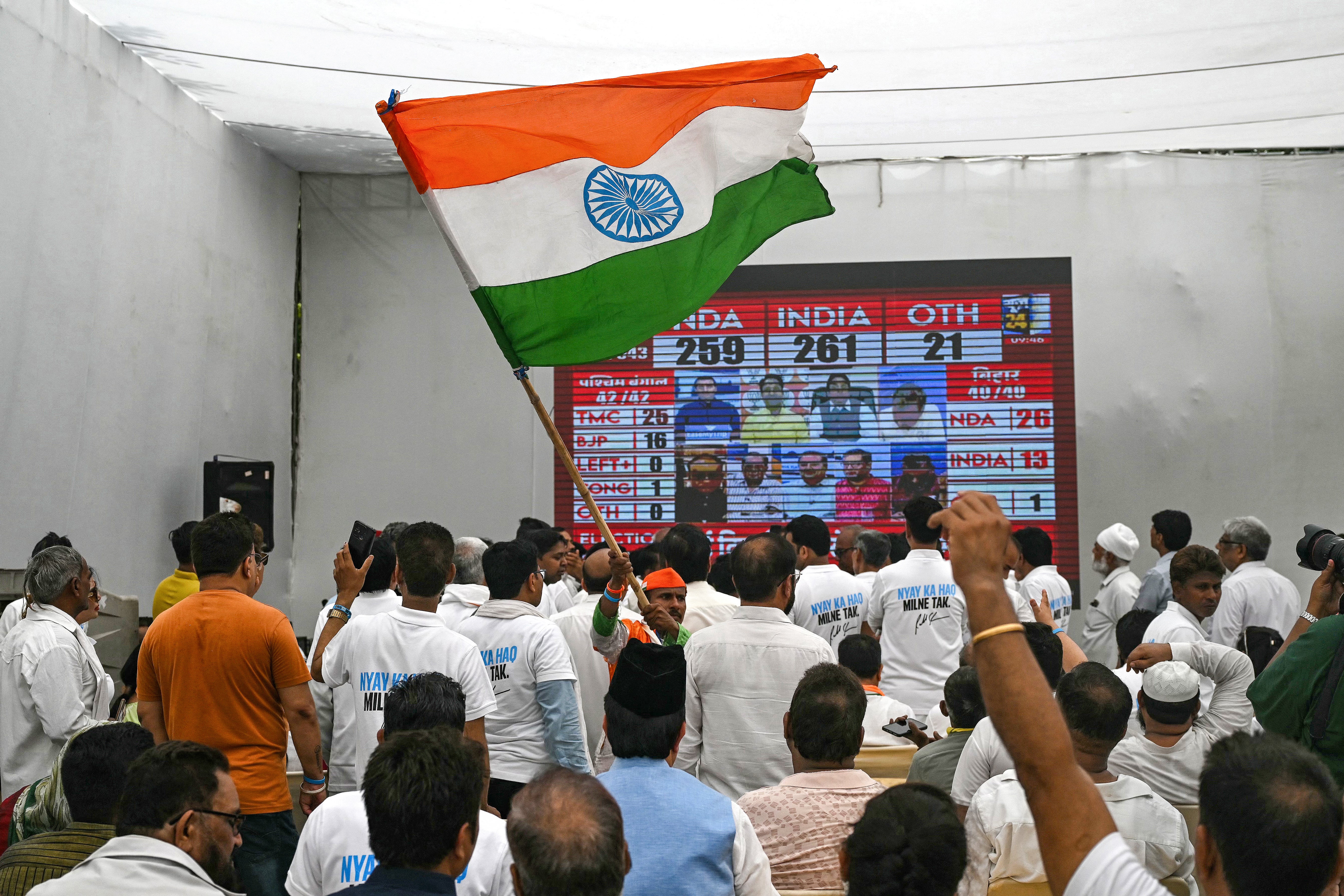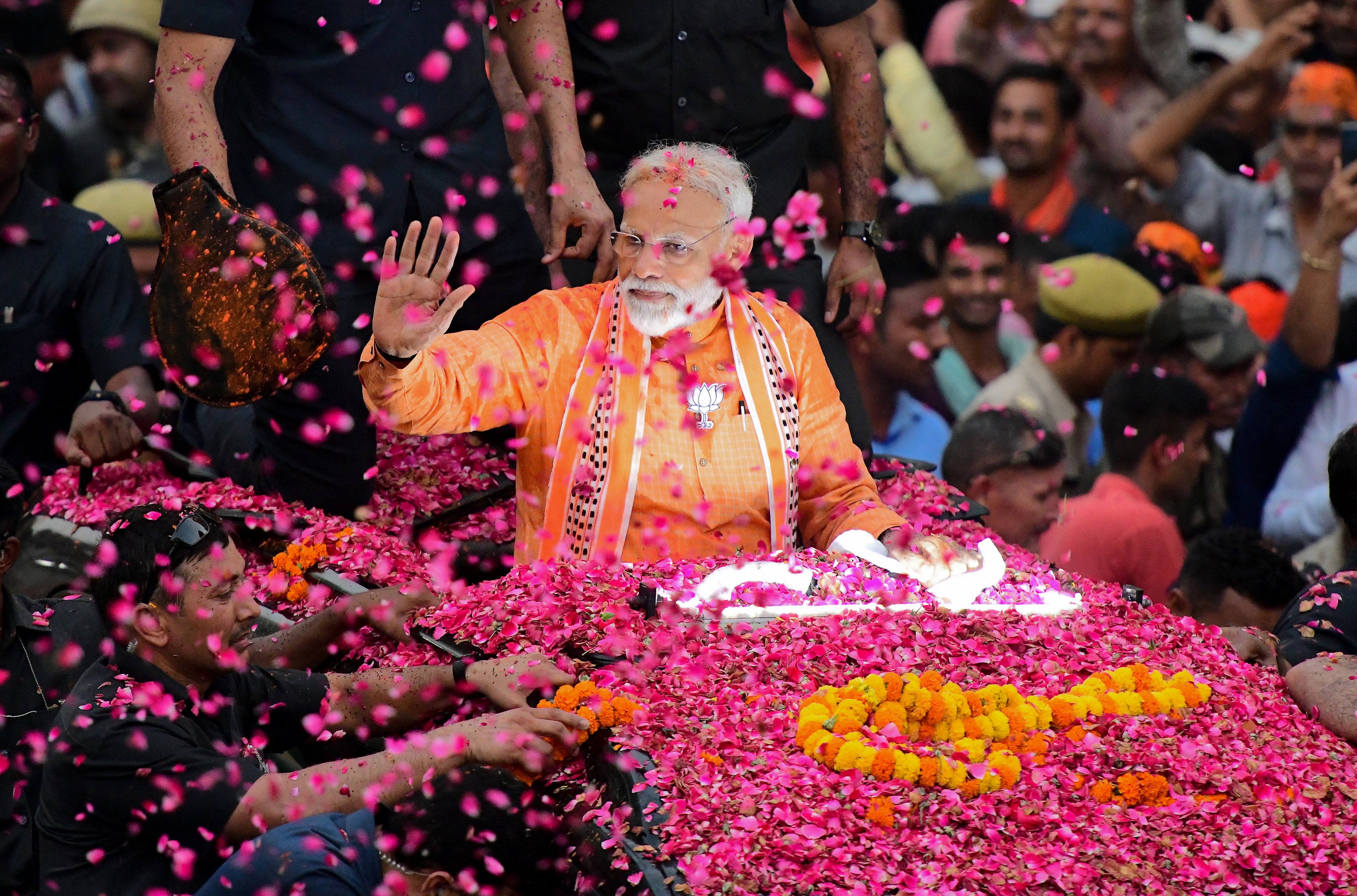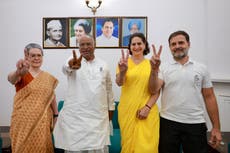Modi faces greatest pressure of his political career as BJP falls short of outright majority
Analysis: Concerns over a rise in Islamophobia and the erosion of democracy remain, but having to rule within a coalition will severely limit what Narendra Modi can do in the next five years. Alisha Rahaman Sarkar reports

Prime minister Narendra Modi’s apparent failure to win an outright majority in India’s general election will spark conflict within his party and limit his mandate to carry out sweeping reforms in a historic third consecutive term.
Modi is still set to return as prime minister, but will need the support of coalition members in his National Democratic Alliance (NDA) bloc to do so, a stunning development that defies most analysts’ expectations and every exit poll released after voting closed in the general election on Saturday.
As of Tuesday evening, Modi’s BJP [Bharatiya Janata Party] was leading in 245 seats, well short of the 272 needed for a majority. His NDA coalition as a whole was ahead in 295 constituencies, while the opposition INDIA alliance was leading in a remarkable 232 seats. Some exit polls had predicted that INDIA would win as few as 120.
Follow our live coverage of 2024 Indian elections.
Modi boasted on the campaign trail that his NDA would win a third landslide and as many as 400 seats in the 543-seat lower house of parliament. His opponents and critics feared what would happen if he were given such a mandate, including the prospect that he could change India’s secular constitution and declare it a Hindu country. Modi denied having any plans to do so, but opposition leader Rahul Gandhi declared on Tuesday evening that voters had “fought to save the Indian constitution”.
Whether or not such a change was truly on the cards, Modi had promised that some major reforms would come in his first 100 days after winning the election. “My plan for the first 100 days after the result is ready, and I won’t waste a single day,” the prime minister repeatedly said during election rallies and scripted TV interviews.
Some of the BJP’s most eye-catching plans included a uniform civil code, essentially forcing the country’s many communities to bring their customs closer in line with the Hindu majority, and a national register of citizens, which critics said could see many Indian Muslims without proper documentation branded illegal immigrants.

Another campaign pledge was to regularise Indian elections so that federal and state votes all take place at the same time every five years. It was widely thought that this policy would benefit only the BJP, as it would capitalise on Modi’s supposedly iron-clad personal approval figures.
Such sweeping changes will now almost certainly be challenged by Modi’s alliance partners, said Sayantan Ghosh, columnist and professor at St Xavier’s College in Kolkata. “The Modi government will have to backtrack on its ideology,” he explained. “Modi is for the first time under pressure. It will be the most compromised NDA government ever formed.
“Modi and home minister Amit Shah will have to take the responsibility, because they have been at the top and there are resentments within the party.”
If, as expected, the BJP doesn’t win a majority on its own, it will be “heavily dependent on the goodwill of its allies, which makes them critical players who we can expect will extract their pound of flesh, both in terms of policymaking as well as government formation”, said Milan Vaishnav, director of the south Asia programme at think tank the Carnegie Endowment for International Peace.
“This would be truly uncharted territory, both for Indians as well as for the prime minister,” he told reporters.
Opposition leaders are attributing Modi’s election underperfomance to his failure to address the country’s growing economic inequality, with unemployment steadily rising even as billionaires and major businesses thrive. Since rising to national prominence with his home state’s “Gujarat model” of economics, until now Modi’s pro-market stance has been seen as a major selling point.
Reuters reported that two government officials had said Modi was planning to introduce a raft of business-friendly measures, including pushing through regulations that would make it easier for large companies to hire and fire workers.
Those same markets responded very negatively to Tuesday’s results, with the Sensex and Nifty indices dropping some 8 per cent before recovering slightly.
Dr Chietigj Bajpaee, senior research fellow for the south Asia programme at Chatham House, said the election result “may restrain some of the BJP’s more controversial identity-driven politics, but it will also make it more difficult to make progress on some of the more politically sensitive reforms, for instance labour reforms and land acquisition. This explains the fall in India’s stock market as the results are being announced.”

Though no one is currently in a position to challenge Modi’s authority within the BJP, Tuesday’s results are a huge dent in his aura of invincibility, and will embolden factions within the Hindu nationalist movement that believe he has taken too much power into his own hands.
One senior member of the Rashtriya Swayamsevak Sangh (RSS), the militaristic ideological parent of the BJP, said its leaders were considering ways they could “pull up” or reprimand Modi for the result. They suggested the RSS could seek to hold an internal election, which, though not directly affecting Modi’s position as BJP leader, could see the RSS move away from him in the direction of a preferred successor.
While these results might seem like bad news for the BJP, ultimately Modi has won the election with a campaign that started out talking about economic growth and ended in shrill dog-whistle references to Muslims taking wealth from Hindus. Modi began his election campaign by inaugurating a temple to the Hindu god-king Ram that was built on the site of an illegally demolished 16th-century mosque, and the courts are currently hearing cases against two more mosques in the BJP-run state of Uttar Pradesh.
But if one event on Tuesday suggested that Modi’s tactics for appealing to his right-wing Hindu base were faltering, it was the result from Ayodhya. The very seat where Modi inaugurated the Ram Temple was actually won by a candidate standing for the INDIA alliance.
“One important thing the elections have shown is that India’s democracy remains more robust than is often perceived,” Bajpaee notes. “Despite its imperfections, a degree of checks and balances persist in India’s democracy, with the institutions still stronger than the individual. In a country of India’s size and diversity, with longstanding traditions of dialogue and disagreement, democracy cannot be easily overturned.”
Join our commenting forum
Join thought-provoking conversations, follow other Independent readers and see their replies
Comments


Bookmark popover
Removed from bookmarks